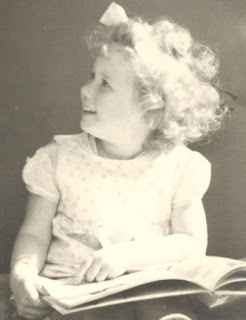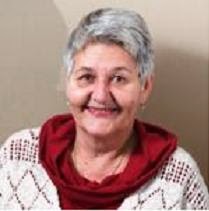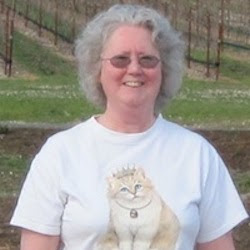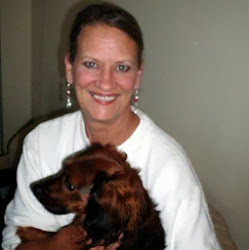
Imagine having to leave the city where you had happiness, loving parents, wealth, and social standing, to become a mail order bride on a Texas ranch in 1856. It was a long way for Sarah Dobbs to go with her little sister Thea from Philadelphia to San Antonio. Why would she do such a thing?
Her wealthy father’s investments had disintegrated into nothing and he had shot his wife and then himself. All the old friends abandoned Sarah after this disgraceful thing had happened. The house was gone, the money was gone, and she had no family left except her very young sister Thea, whom she felt responsible to protect and care for.
Sarah herself was considered not worthy of a good husband because she had fallen off a horse and the fall had mangled her leg. She walked with a limp. Her leg was deformed. When Austin Canfield of the Bar C Ranch in Ladreville, Texas began courting Sarah through his letters, she fell in love with him. Even though she realized the marriage was more of a business arrangement, she knew she loved him. But here she was now, waiting at the station in San Antonio for him to arrive, and he was nowhere to be found. Had he deserted her, too?
When she had about given up hope, she was finally met not by Austin, but by someone else, who turned out to be his brother, Clay. It was Clay’s horrible task to tell Sarah her husband-to-be had just been murdered. His intent was to take Sarah back to the ranch so that she and Thea could recover from their trip, and be ready to make the return trip back home in a week. As you can probably guess, it didn’t turn out that way.
Paper Roses by Amanda Cabot would be classified as inspirational fiction with a bit of romance. Both Sarah and Clay are dealing with anger over what has happened to their families and a feeling that God didn’t care or he would have prevented it. Austin’s one purpose was to find his brother’s killer, see that he paid, and then go back to his medical practice in Boston.
Sarah’s purpose was to protect Thea from the kind of ostracism she herself had suffered because of her father’s actions. She felt that could best be accomplished in a new setting where no one knew her. She wanted to stay in Texas. She was determined to find a way to make a living to support her and Thea.
Clay allows her to continue living on the ranch until she can support herself. He is kind to both her and Thea. He had lost his own wife who was pregnant with their first child, and he has not recovered from that. She had died of food poisoning from eating tainted fish chowder, or so everyone had thought.
Thea insists on calling Clay “Papa,” much to his dismay, even though both Sarah and Clay have repeatedly set her straight. But he is very kind to Thea and even teaches her to ride a horse – over the protests of her mother, who was still terrified of horses.
Besides the theme of revenge, there is also the theme of the rivalry between the French and German immigrants in the town who hate each other. There is a thief who has been cutting fences and because no one knows who he is, the thefts and fence cuttings cause the people to blame anyone they don’t like so that the French and Germans hate each other even more.
Sarah is finally hired to work in the mercantile owned by a French family, Isabelle and her brother, Leon. Neither could speak German, but half the town spoke only German. Sarah could speak German and had demonstrated her usefulness by translating for German customers on her first visit to the store the day Clay brought her to town to get some things she needed. After hiring Sarah, the store’s sales increased, and Isabelle, who was a devout Christian, became Sarah’s close friend.
That’s all I will tell you. You may be able to guess the end from here, but not all the twists and turns that take you there as both Sarah and Clay try to find Austin’s killer, Sarah tries to unite the town and start a school, Sarah tries to help Clay’s father walk again, and God begins to heal old wounds to the spirits of all involved.
If you enjoy Christian fiction, I recommend
Paper Roses. It’s worth the read. I turned out to be right about the murderer. The book’s title comes from the letters Sarah received from Austin during their courtship. She called them paper roses.
Note: The author may receive a commission from purchases made using links found in this article. “As an Amazon Associate, Ebay (EPN) and/or Esty (Awin) Affiliate, I (we) earn from qualifying purchases.”










 Imagine having to leave the city where you had happiness, loving parents, wealth, and social standing, to become a mail order bride on a Texas ranch in 1856. It was a long way for Sarah Dobbs to go with her little sister Thea from Philadelphia to San Antonio. Why would she do such a thing?
Imagine having to leave the city where you had happiness, loving parents, wealth, and social standing, to become a mail order bride on a Texas ranch in 1856. It was a long way for Sarah Dobbs to go with her little sister Thea from Philadelphia to San Antonio. Why would she do such a thing?


 Conclusion
Conclusion

 Sylvestermouse
Sylvestermouse Dawn Rae B
Dawn Rae B MbgPhoto
MbgPhoto Brite-Ideas
Brite-Ideas Wednesday Elf
Wednesday Elf Olivia Morris
Olivia Morris Treasures by Brenda
Treasures by Brenda The Savvy Age
The Savvy Age Margaret Schindel
Margaret Schindel Raintree Annie
Raintree Annie Lou16
Lou16 Sam Monaco
Sam Monaco
 Cheryl Paton - Coming Soon
Cheryl Paton - Coming Soon Renaissance Woman
Renaissance Woman BarbRad
BarbRad Bev Owens
Bev Owens BuckHawk
BuckHawk Decorating for Events
Decorating for Events Heather426
Heather426 Coletta Teske
Coletta Teske MissMerFaery
MissMerFaery Mickie_G
Mickie_G